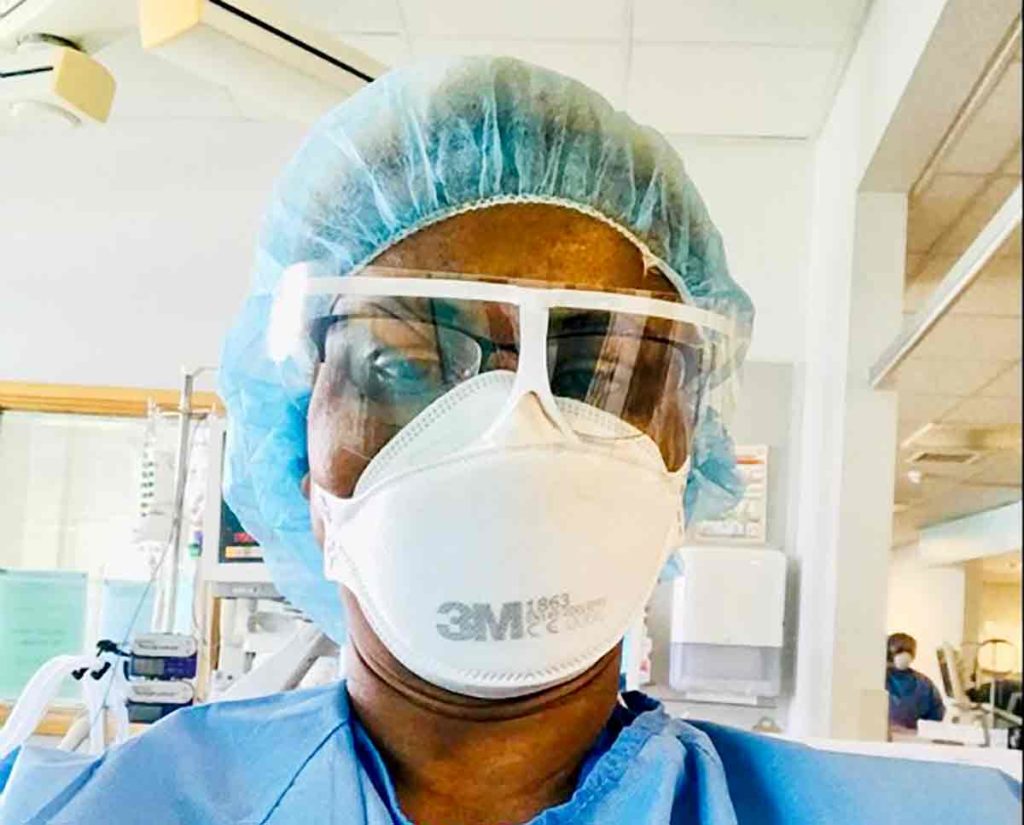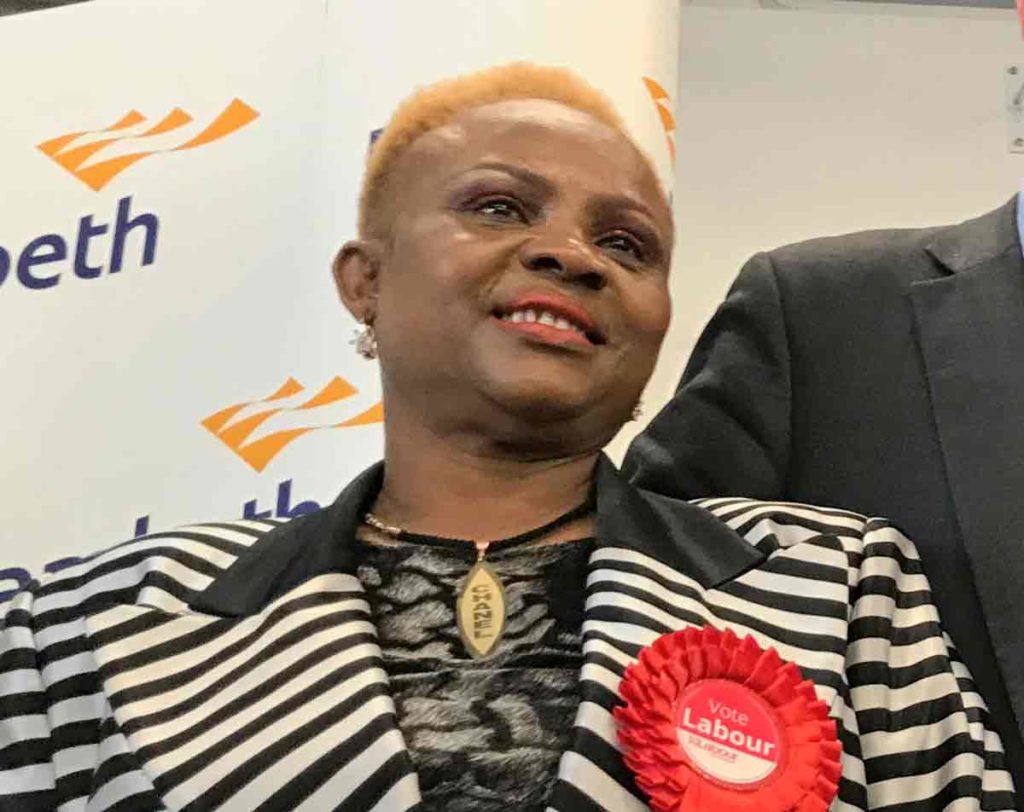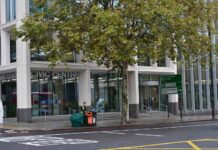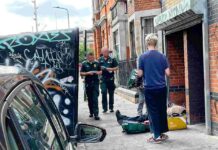 Pauline George
Pauline George
Councillor and nurse shares her front line experience
Pauline George, a Lambeth councillor and intensive care unit nurse has been helping tackle the coronavirus on two fronts: working to help patients with severe symptoms and representing her local community during the crisis
Cllr George, who represents Herne Hill ward, spent 39 hours last weekend in her role as an intensive care nurse. She has been sharing her experiences dealing with the pandemic on the NHS front line with her fellow councillors.
Lambeth council leader Jack Hopkins said: “Pauline, like many in our community, is going above and beyond to help residents during this unprecedent crisis. She is setting an impressive example for us all, and I would ask that we recognise her huge efforts by following her advice about how to act responsibly at this time.”
This is an extract from Pauline George’s account of her experiences:
I am a practising nurse and would like to share my recent experience as a senior anaesthetic and recovery nurse working during the Covid-19 crisis. I love my work and felt guilty staying at home, so I decided to make a positive contribution.
I spent last weekend working 13 hours a day from 7.30am at the intensive care unit at Lewisham hospital.
Most of my time was spent caring for patients on ventilators to support their breathing due to respiratory distress caused by suspected or confirmed coronavirus.
Staff, including myself, worked tirelessly; so busy we could only snatch quick breaks during each shift.
On Saturday when I started work I was worried about my own health, as I am a diabetic.
But I am putting the welfare of my patients before my own and, like all NHS workers, I hope the government’s promise of an adequate supply of personal protective equipment will soon materialise.
Wearing a protective mask all day made my face itch and become swollen.
While at work, I found myself questioning if I was doing the right thing.
Most of my colleagues felt the same. We comforted and reassured each other, and concluded that, like train and bus drivers, supermarket workers, carers, social workers, doctors and all those working hard during this time of crisis, we had to do our bit.
We were on our feet for most of the shift; caring for patients who needed constant observation, recording vital signs like blood pulse pressure and respiration, as well as hourly checks on kidney function.
I had to take patients’ blood frequently to check their blood gas level through the blood gas machine which is used to determine how much they are improving and how to regulate their medication.
Many patients also needed suction to free fluids from their lungs depending on how much damage the virus had caused.
Observing the impact of Covid-19 on the lungs, I can only compare it to drowning with dangerously reduced levels of oxygen in the blood. The patient cannot survive without ventilators to deliver oxygen.
Ventilator settings had to be frequently changed and regulated according to each patient’s condition.
Intravenous infusion also needed to be monitored. As well as medical care, as nurses we had to perform personal care for the patients.
As they were unconscious, we had to frequently change their position to prevent pressure sores. This is physical work.
The experience of looking after patients with coronavirus changed my perception of life.
The virus does not discriminate. It can affect anybody, rich or poor, and can infect people of any age, class, race or creed.
I worked so hard during my shift that after 39 hours on the intensive care unit I was exhausted, had lost weight and my feet were sore.
I slept all day on Monday and was still tired the next day.
But I found myself still wanting to go and help and have signed up to work this weekend at intensive care unit at Northwick Park Hospital which is the epicentre of coronavirus treatment.
So I ask my fellow residents to help our NHS staff by doing your bit to lower the levels of infection by:
- Frequently washing your hands for at least 20 seconds
- Adhering to NHS advice on Covid-19
- Staying at home
- Observing social distance of at least two metres
Updates and advice about the impact of coronavirus in Lambeth







